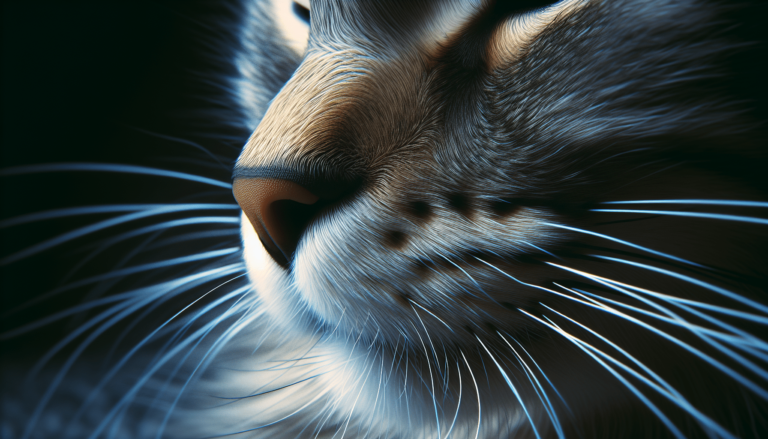What Smells Do Cats Hate
Welcome to the fascinating world of feline preferences! Have you ever wondered which scents cats can’t stand? In this article, we’ll explore some of the common smells that cats hate and how you can use this knowledge to keep your furry friends happy and comfortable. From citrus to spicy scents, there are a variety of odors that can repel cats and help you create a harmonious living environment for you and your whiskered companions. Let’s dive in and discover what smells do cats hate! What smells do cats hate?
Have you ever noticed your feline friend wrinkling their nose or running away at the slightest whiff of a certain scent? Cats have a heightened sense of smell, which means they can be particularly sensitive to certain odors. In this article, we will explore what smells cats hate and how you can use this information to keep your furry companion happy and comfortable in their environment.
Why do cats hate certain smells?
Cats have an incredibly powerful sense of smell, which is estimated to be about 14 times stronger than that of humans. This heightened sense of smell is a result of their biology and evolutionary history. In the wild, cats rely on their sense of smell to hunt prey, avoid predators, and navigate their environment. As a result, they are naturally sensitive to certain odors that may be unpleasant or harmful to them.
Cats have sensitive noses
Cats have a specialized olfactory system that allows them to detect a wide range of scents in their environment. Their sense of smell is closely linked to their survival instincts, as they use it to identify food, potential threats, and familiar territory. When a cat encounters a smell they dislike, it can trigger a negative response, such as avoidance or defensive behavior.
Cats are territorial animals
Cats are territorial creatures by nature, and they use their sense of smell to mark and defend their territory. Certain odors that cats find offensive may be perceived as a threat to their territory, triggering a defensive response. In the wild, cats use scent marking to communicate with other cats and establish boundaries within their territory.

What smells do cats hate?
While each cat is unique and may have their own individual preferences when it comes to scents, there are several smells that are commonly disliked by most felines. Here are some smells that cats typically hate:
| Smell | Description |
|---|---|
| Citrus | Cats are known to dislike the smell of citrus fruits, such as oranges, lemons, and grapefruits. The strong, tangy scent of citrus can be overwhelming for cats and may cause them to avoid areas where the smell is present. |
| Mint | The strong, sharp scent of mint can be off-putting to cats, who may find it too overpowering. Mint is often used as a natural deterrent for cats to discourage them from certain areas of the home. |
| Lavender | While Lavender is a popular scent among humans for its calming properties, cats often find the floral aroma to be unpleasant. The strong fragrance of lavender can be overwhelming for cats, causing them to steer clear of areas where the scent is present. |
| Eucalyptus | Eucalyptus has a strong, medicinal scent that can be irritating to cats’ sensitive noses. Cats may avoid areas where eucalyptus is present, as the smell can be overwhelming and uncomfortable for them. |
| Cinnamon | The warm, spicy scent of cinnamon can be unappealing to cats, who may find it too intense. Cats may avoid areas where the smell of cinnamon is present, as they may find it to be unpleasant or irritating. |
Why do cats hate these smells?
Cats have a natural aversion to certain scents due to their biological and evolutionary history. Citrus, mint, lavender, eucalyptus, and cinnamon are all strongly scented substances that can be overpowering to cats’ sensitive noses. These smells may trigger negative associations or discomfort in cats, causing them to avoid areas where the scents are present.
How can you use this information?
By knowing what smells cats hate, you can create a more comfortable and stress-free environment for your feline companion. Avoid using scented products that contain citrus, mint, lavender, eucalyptus, or cinnamon in areas where your cat spends time. Instead, opt for unscented or cat-safe products to ensure your cat’s well-being and happiness.

How to keep your cat happy and comfortable
Creating a safe and comfortable environment for your cat involves more than just avoiding unpleasant smells. Here are some tips to help keep your cat happy and content in their surroundings:
Provide a clean litter box
One of the most important factors in your cat’s environment is their litter box. Make sure to keep the litter box clean and odor-free by scooping it regularly and changing the litter as needed. Cats are very particular about their litter box hygiene, and a dirty box can cause stress and discomfort for your feline friend.
Offer plenty of hiding spots
Cats are natural explorers and hunters, and they enjoy having places to hide and observe their surroundings. Provide your cat with plenty of hiding spots, such as cat trees, boxes, or cozy blankets, where they can feel safe and secure.
Provide interactive toys and playtime
Cats are highly intelligent and curious animals that need mental and physical stimulation to stay happy and healthy. Provide your cat with plenty of interactive toys, such as feather wands, laser pointers, or treat puzzles, to keep them entertained and engaged.
Create a comfortable resting area
Cats spend a significant amount of their time resting and lounging, so it’s important to provide them with a comfortable place to relax. Invest in a cozy bed or blanket for your cat to curl up on, and place it in a quiet, comfortable spot where they can nap undisturbed.
Establish a routine
Cats are creatures of habit and thrive on routine. Establishing a consistent daily routine for feeding, playtime, and rest can help your cat feel secure and confident in their environment. Try to stick to a regular schedule for meals, play sessions, and bedtime to provide structure and stability for your feline companion.

Conclusion
Understanding what smells cats hate and how to create a comfortable environment for your feline friend is essential for their well-being and happiness. By avoiding scents that are irritating or unpleasant to cats and providing them with a safe, stimulating environment, you can help ensure that your cat feels secure and content in their surroundings. Remember to pay attention to your cat’s preferences and behaviors, and make adjustments as needed to create the perfect environment for your furry companion.







